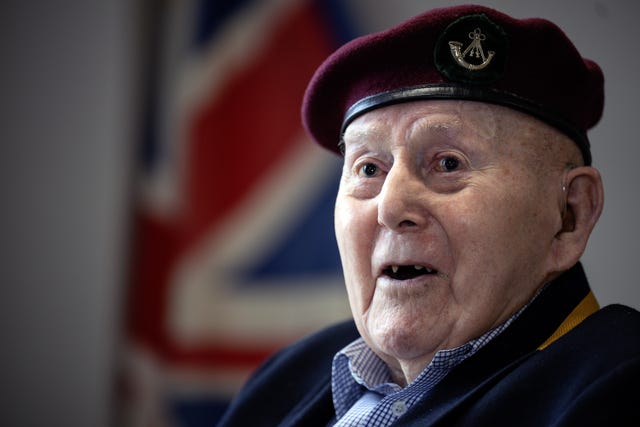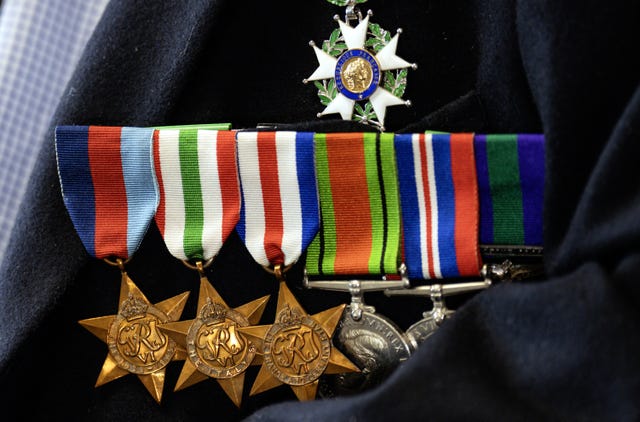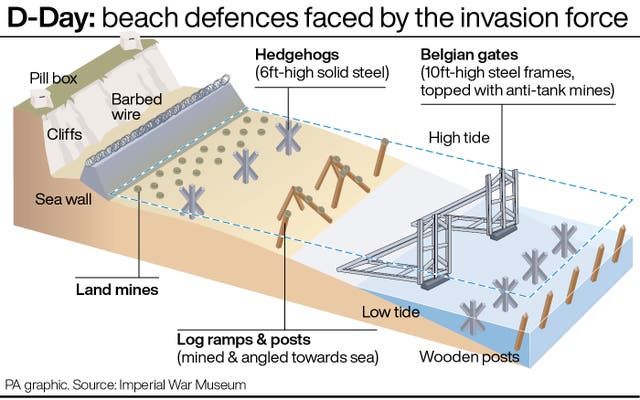Mr Belcher, now 100, and his colleagues from the Airborne Regiment, 4th Battalion Oxfordshire and Buckinghamshire Mild Infantry have been flown in on gliders to seize very important bridges forward of the seaborne invasion.
Setting off at about 8pm on June 5 1944 from RAF Harwell in Berkshire, he and 5 of his colleagues sat at the back of the glider, with a six-pounder anti-tank gun, because it circled spherical above England earlier than ultimately touchdown in Normandy at about midnight.
Talking to the PA information company at Broughton Home veterans’ care residence in Salford, Larger Manchester, Mr Belcher mentioned: “I used to be scared. It goes very quiet. You hear the drone of the airplane all the best way, you see, after which all of the sudden it goes quiet. You possibly can hear a pin drop.”
Mr Belcher, who grew up in Wiltshire however moved to Manchester after the warfare, obtained to Normandy after the primary arrivals after which needed to “dig in”.

He mentioned: “Our job then was to maintain low till we heard the weapons from the ocean at 4 o’clock within the morning.”
He mentioned between 4am and 6am they heard the gunfire from the seashores.
“Among the shells come over amongst us,” he mentioned.
“We had casualties however nowhere close to as nice.

“If you go into motion, the planners, even for the troops landed by the ocean, permit 50% casualties. Half of you’re going to be out of motion, that’s what they assess. That occurred on the seashores, extra so with the People on the seashores.
“I couldn’t let you know what number of casualties we had. We had the primary one, however as a battalion on D-Day I don’t suppose we had so much, nowhere close to anticipated.”
Earlier than the tip of the day, troops had come from the French seashores to the bridges – one in every of which was renamed Pegasus Bridge in honour of the operation.
Mr Belcher mentioned: “A piper from the 51st Highland Division was main them up. Then there was virtually a battle between us and the 51st Highland Division as a result of they put the Highland Division signal on the bridge and so they hadn’t been there!”
The previous paratrooper has been again to Normandy on 4 events, the final on the fortieth anniversary the place he was concerned in a parachute re-enactment earlier than assembly the late Queen.
Mr Belcher was in the identical battalion as his older brother, Sam, a sergeant main.
Each survived the warfare, occurring after D-Day to combat within the Battle of the Bulge – the final main German offensive – and Operation Plunder to cross the Rhine.

Mr Belcher mentioned crossing the Rhine proved way more harmful for his battalion than D-Day.
He mentioned: “We had 110 killed and 265 that have been unfit to hold on within the two hours of touchdown. A stunning morning, the solar shining and so they knew we have been going.”
When the warfare ended, Mr Belcher was on the Baltic coast and later went to a focus camp the place he noticed our bodies “piled up”, and a few survivors.
Requested if he felt happy with what he had carried out throughout the warfare, he mentioned: “I’ve by no means considered it that manner in any respect actually. We had a job to do.
“For those who be a part of the forces you’re educated to combat and educated to kill. So you could anticipate a few of you’re going to be killed. My brother and I, we have been fortunate.”





















+ There are no comments
Add yours